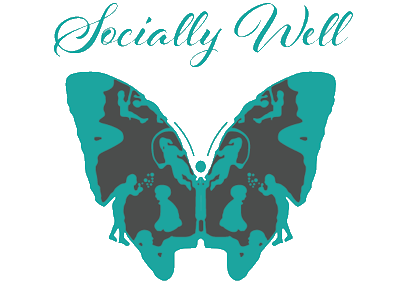 Social skills are the building blocks of social interaction. If you have any developmental delay or Anxiety Disorder you may have missed out on developing some of these important skills. However, you can always learn them no matter your age. Some Examples of Learning content in our program development are:
Social skills are the building blocks of social interaction. If you have any developmental delay or Anxiety Disorder you may have missed out on developing some of these important skills. However, you can always learn them no matter your age. Some Examples of Learning content in our program development are:
Being Assertive
Assertiveness helps you relate to others in a way that balances the needs of everyone. If you have a tendency to defer to others, it can feel uncomfortable when you first start asserting yourself. However, in the long run, assertiveness will help to reduce anxiety and make both you and the people around you more comfortable.
Communicating Non-Verbally
Nonverbal communication, also known as body language, plays a large role in communication. People with social anxiety disorder tend to have “closed” body language that signals to others that you are unapproachable or unfriendly.6 While this is a natural result of anxiety, it is possible to work on having more open and friendly nonverbal behaviors.
Communicating Verbally
Verbal communication is another skill. The art of conversation may seem like a puzzle if you have social anxiety disorder. You probably have trouble knowing what to say or feel uncomfortable talking about yourself. But, conversations are foundational to building relationships and knowing how to better navigate them will help you get acquainted with those around you.
Making Introductions
Introductions are a way of making people feel comfortable. Whether you are called upon to make introductions or you are being introduced, it is important to know the rules of these social encounters. Knowing how to confidently make introductions is a very useful social skill.
Practicing Active Listening
Active listening involves paying attention, asking questions, and reflecting on what someone says. When you practice active listening, the other person in the conversation feels heard. If you are coping with SAD, practicing active listening may actually help you focus more on others and less on yourself.
Overcoming Telephone Phobia
While the telephone is part of communication, it has its own peculiarities that can make it difficult for those with a social anxiety disorder. You might be afraid to answer the phone, make calls, or even record a voice greeting.
If you have a phobia of using the phone, there are a number of tips and tricks that you can use to overcome your fear. In addition, you can practice exposure therapy on your own to gradually desensitize yourself to using the phone.
Accepting and Giving Compliments
If you live with SAD, you probably have trouble gracefully accepting compliments and may not give compliments easily. Learning these two social skills is important. Compliments are a way of initiating and deepening relationships. They are also great conversation starters and a good way to show appreciation for others. Social skills training (SST) can help people feel more comfortable and utilize their communication and interpersonal skills more effectively
SST generally begins with an assessment of your specific skill deficits and impairments. Your therapist may ask you which social interactions you find the most challenging or which skills you feel could be improved. The goal of this process is to identify the best targets for social skills training for your particular situation. If the client is a child or unable to identify specific social skills, we will assist in identifying areas of social weakness.
Once specific target areas are identified, techniques for improving social skills are introduced. Usually, changes are made in one area at a time to ensure you don’t get overwhelmed.
A therapist may describe a particular skill, explain how to carry it out, and model the behavior. Depending on the severity of skill deficit and age of client these services can occur via telehealth or in home and community. Complex behaviors like how to carry on a conversation may be broken down into smaller pieces such as initiating and introducing oneself, making small talk, and leaving a conversation. Therapists will also discuss both verbal and nonverbal behaviors.
SST Techniques
- Behavioral rehearsal: Role play which involves practicing new skills during therapy in simulated situations
- Corrective feedback: Used to help improve social skills during practice
- Instruction: The educational component of SST that involves the modeling of appropriate social behaviors
- Positive reinforcement: used to reward improvements in social skills
- Weekly homework assignments: Provide the chance to practice new social skills outside of therapy
Research and Evidence
Research on the use of SST in treating Anxiety, depression, Autism, ADHD, and more shows that it is effective whether executed alone or with another form of treatment. SST has also been shown to increase the effectiveness of group therapy for Autism Spectrum Disorders, various childhood disorders, Social Anxiety and Depression.
In general, SST is most effective when used as part of a comprehensive treatment program involving multiple components and is individualized to each person. Therefore, covering multiple diagnosis and problematic behavior.
